Tesla boss Elon Musk has announced that the launch of the brand's Semi electric lorry will be delayed until 2020, citing an already strained battery supply for production of its range of EVs.
Speaking at the firm's annual shareholders meeting, Musk said Tesla would strive to ramp up battery production as quickly as possible, going so far as to suggest a venture into metal mining could be a possibility.
Despite the delay, customers are still able to reserve Semis. Existing customers include large companies such as Walmart, UPS and FedEx, but it is remains to be seen whether the delayed release will discourage further investment in the zero-emissions truck.
Such bottlenecks are no new phenomenon for Tesla; for example, Model 3 production was brought to a halt in early 2018 by worker shortages and software issues. The brand's fourth model, the Model Y, a Jaguar I-Pace rival, is due on the US market next year, with Musk aiming for an output of 2000 examples per week by September 2020.
The Semi will be capable of driving for up to 600 miles on a gingle charge, even when fully loaded, Musk has previously claimed.
His claim followed the boss of Daimler's lorry division, Martin Daum, suggesting that the Semi's statistics "defied the laws of physics".
The Semi with the 600-mile claimed range costs $180,000 (£132,720 at today's rate) in the US. A lower-spec variant with a 300-mile range will be priced from $150,000 (£110,565). Prices for diesel lorries in Britain start at about £85,000 by comparison.


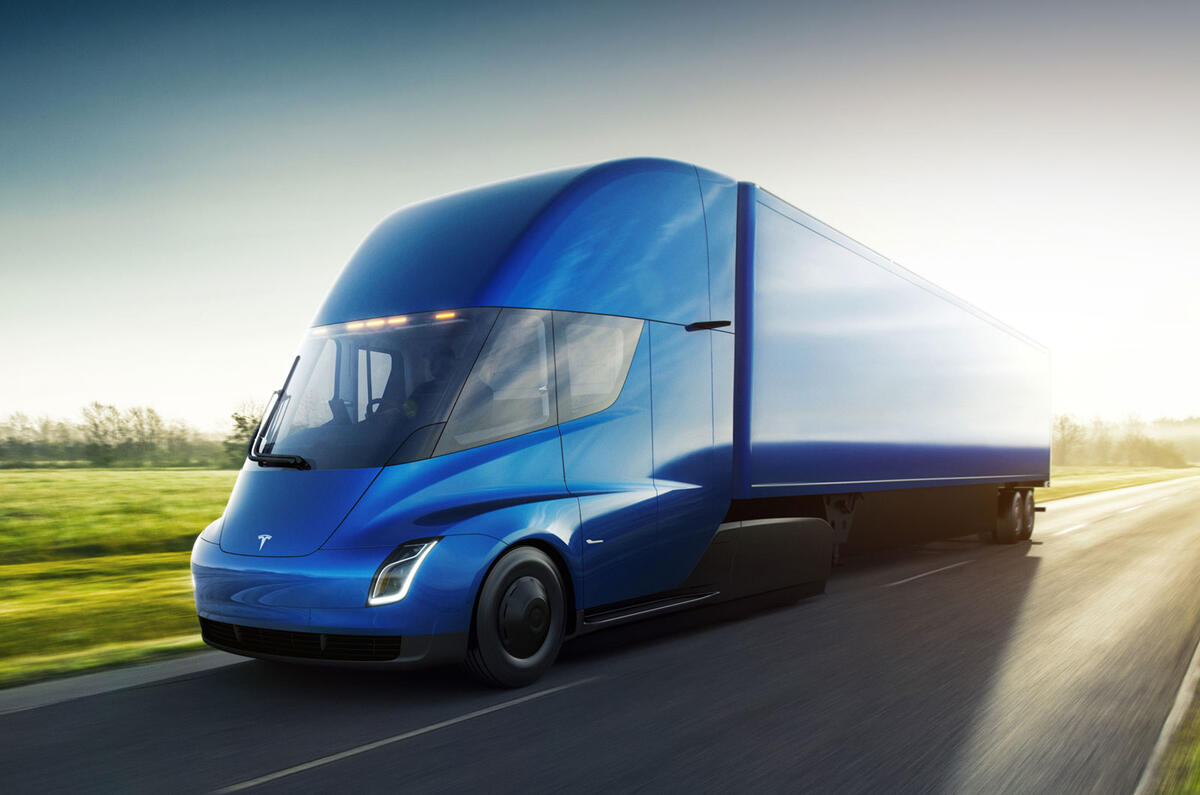
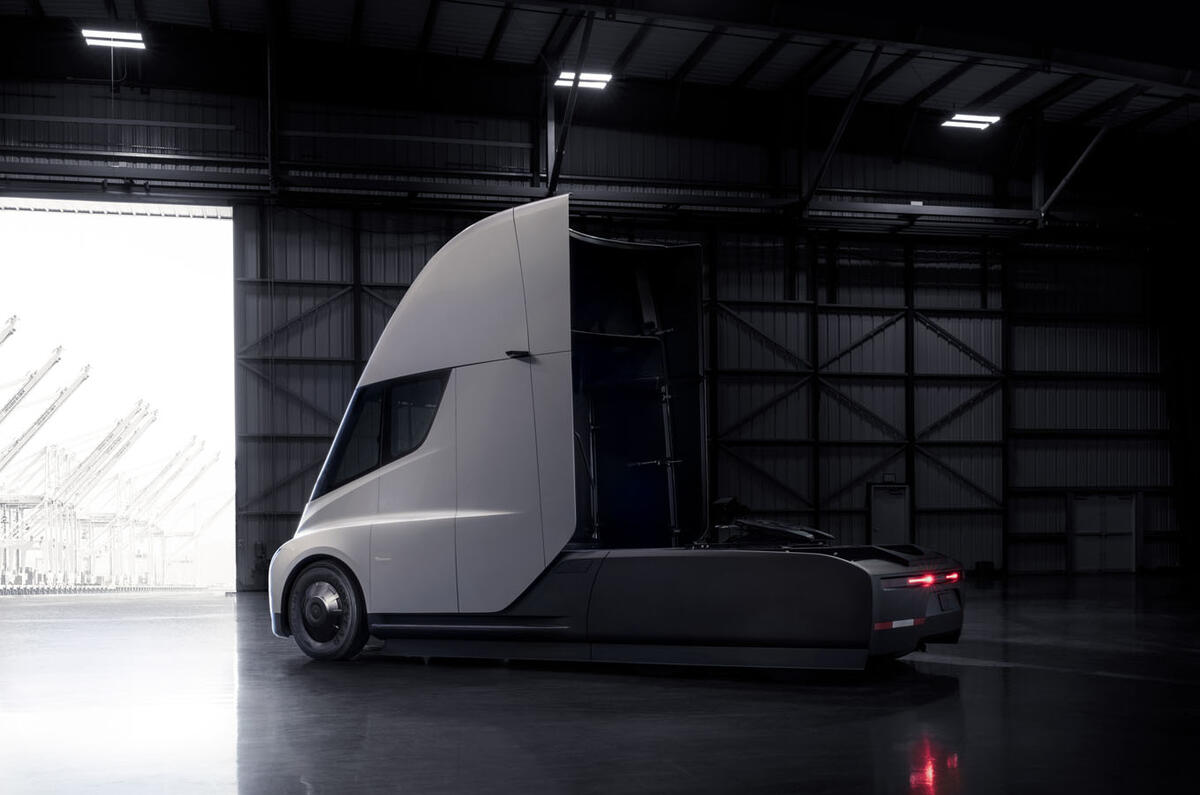
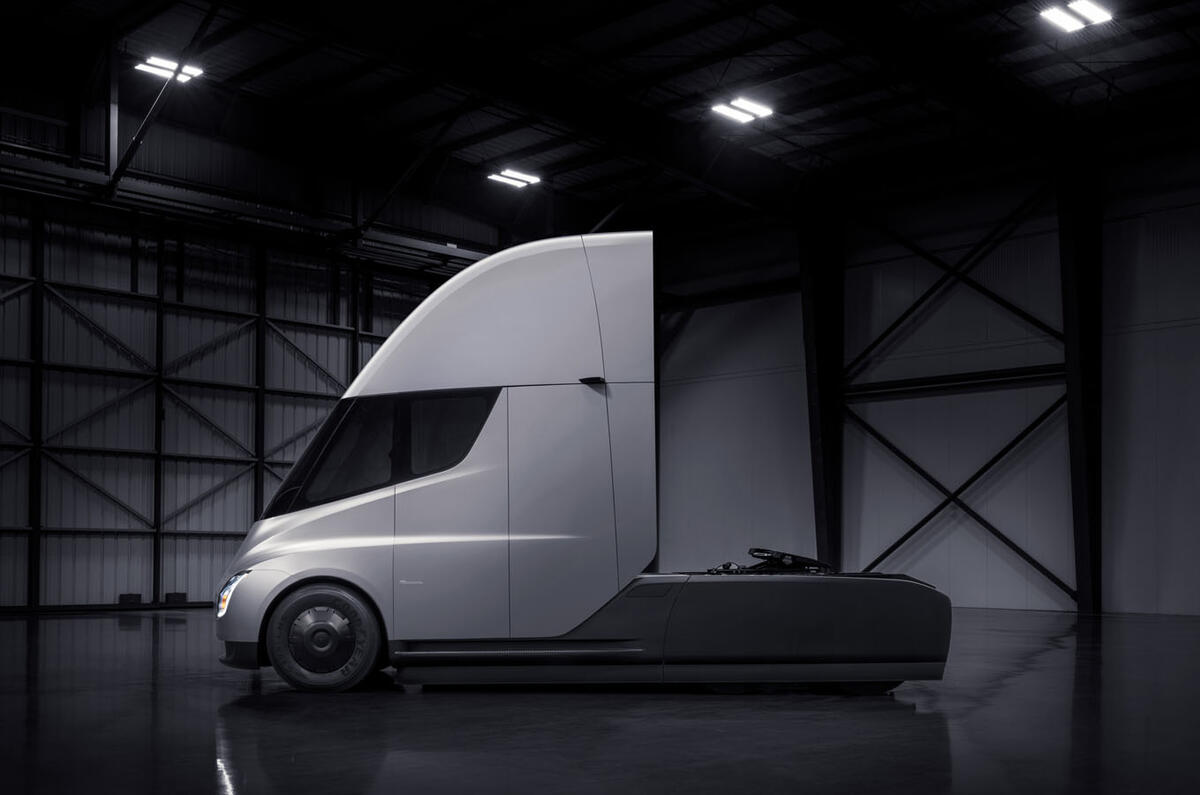
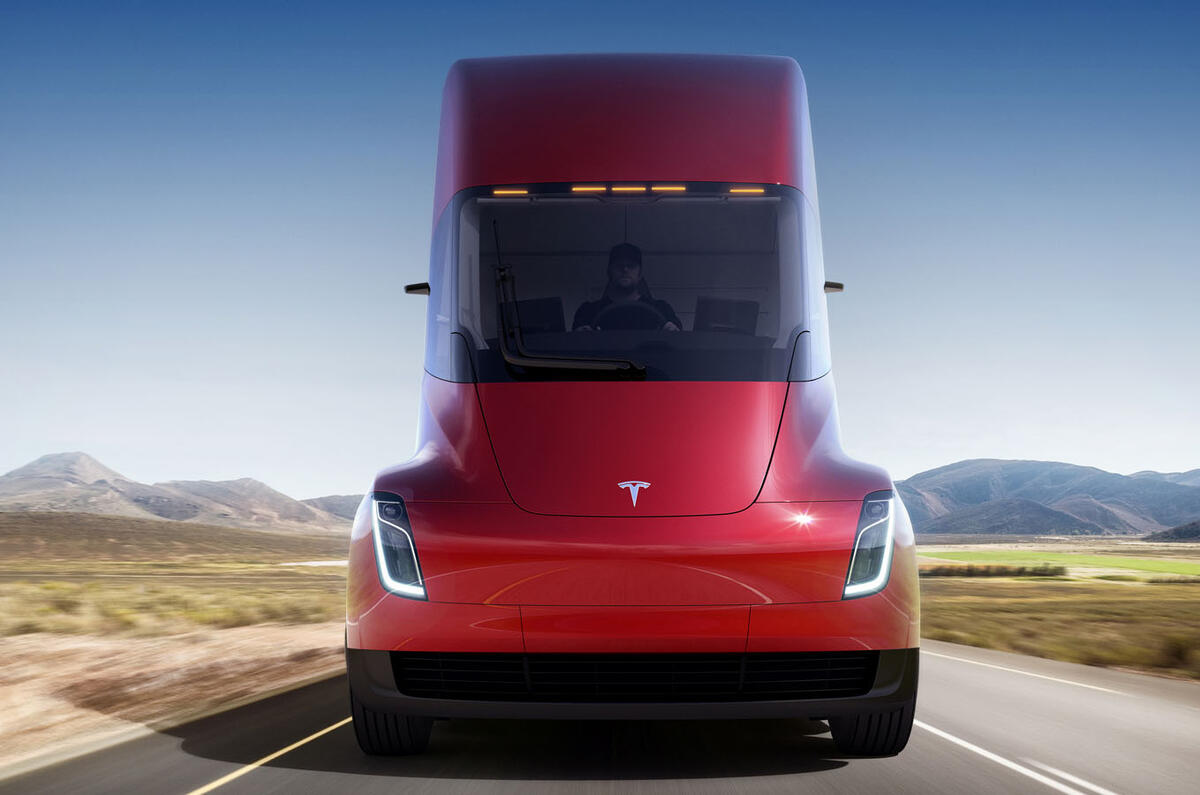
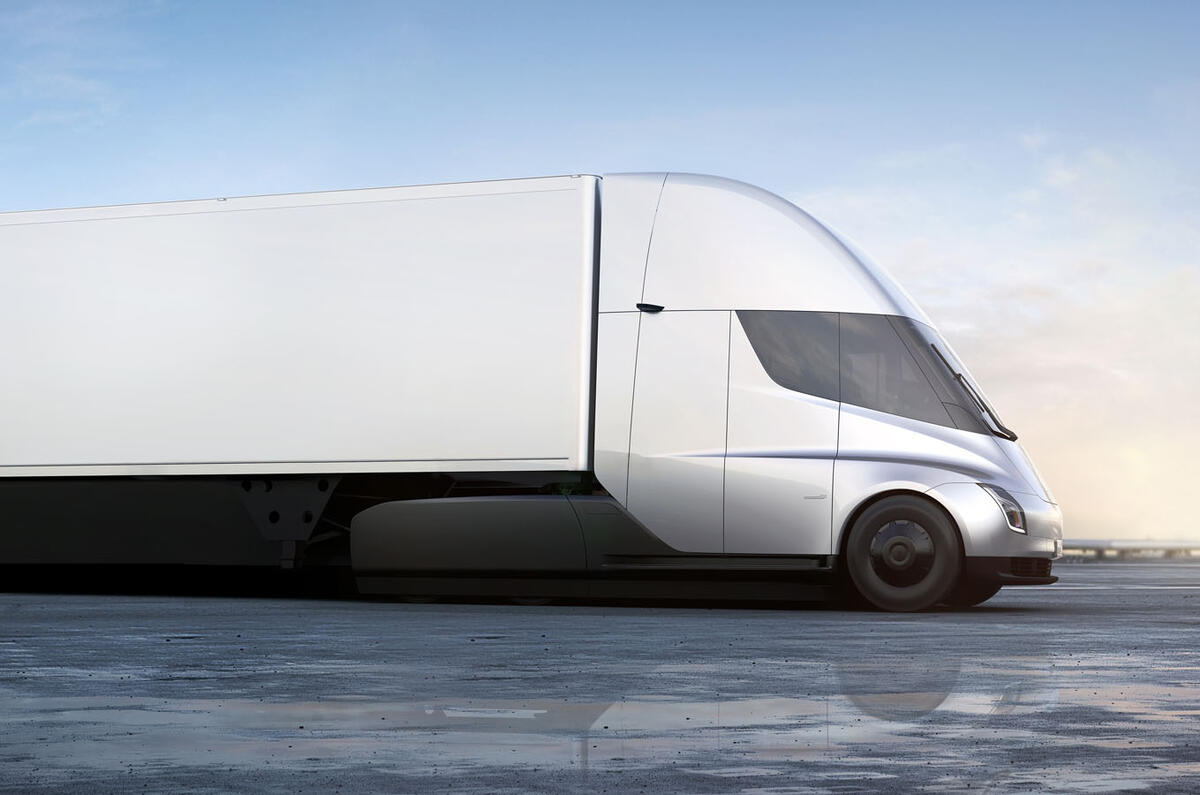
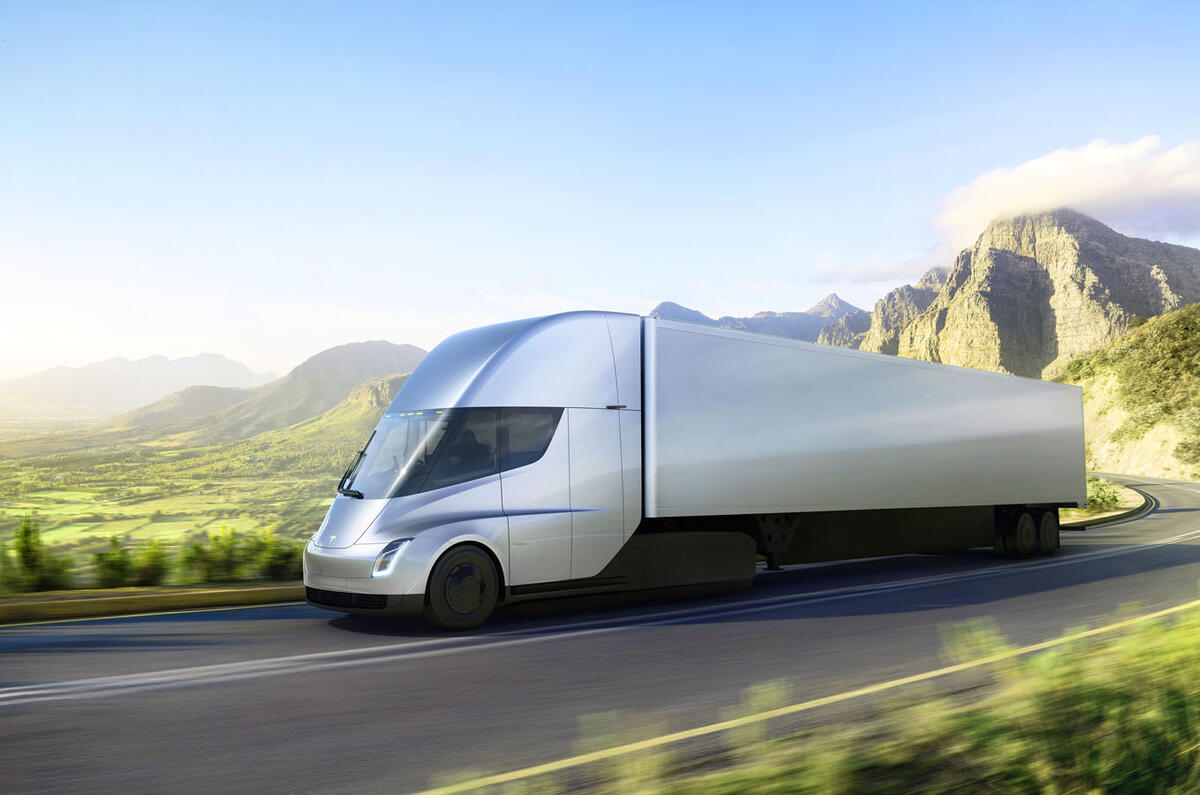
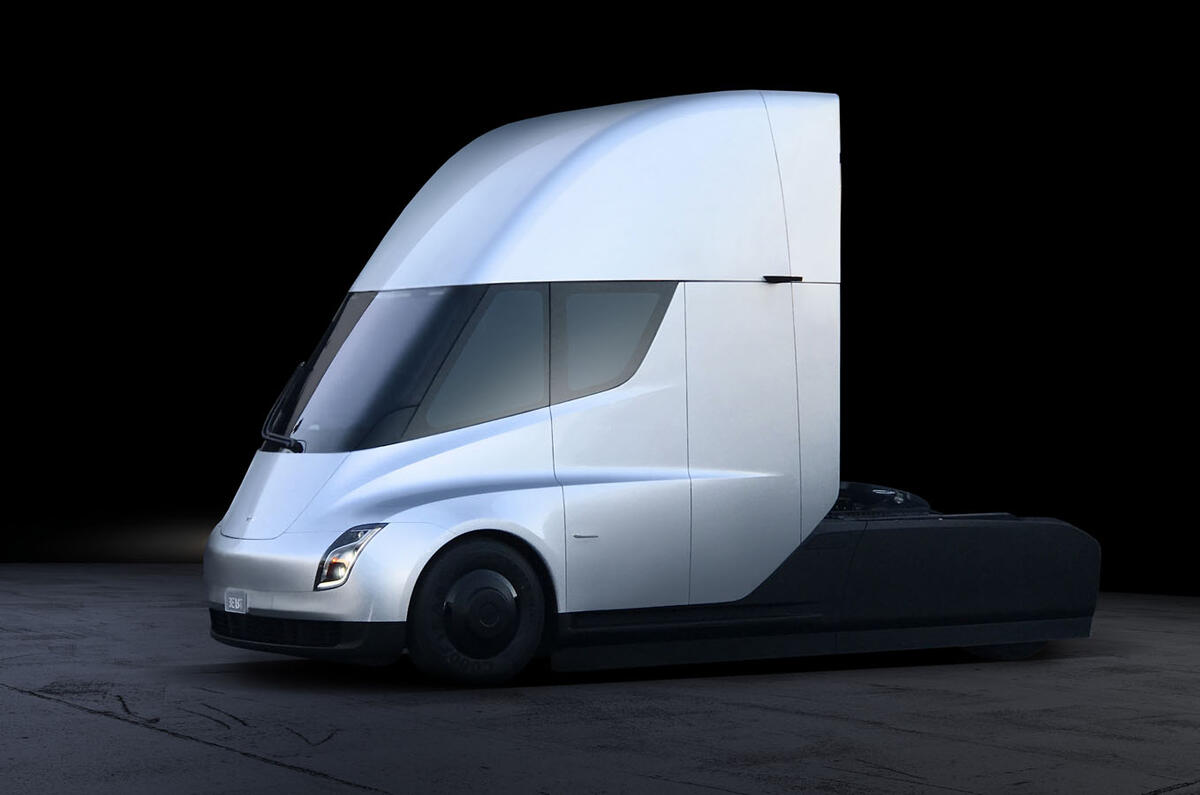
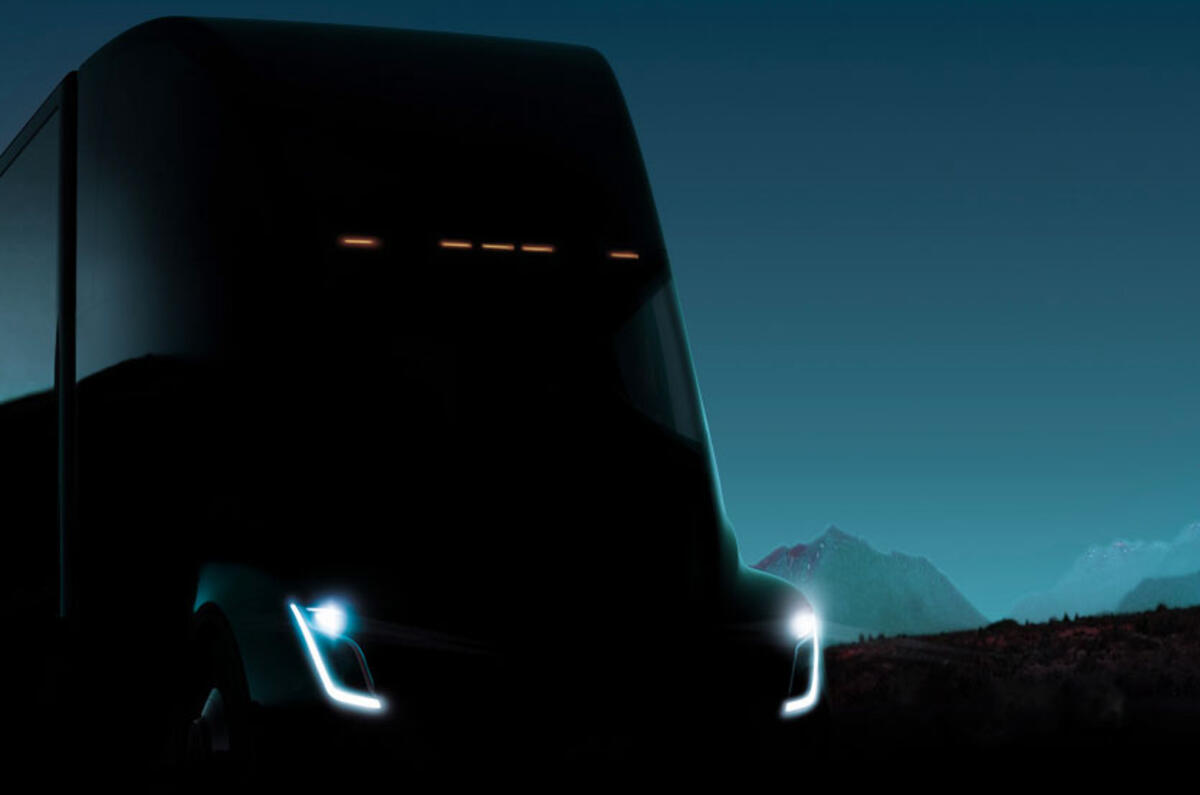
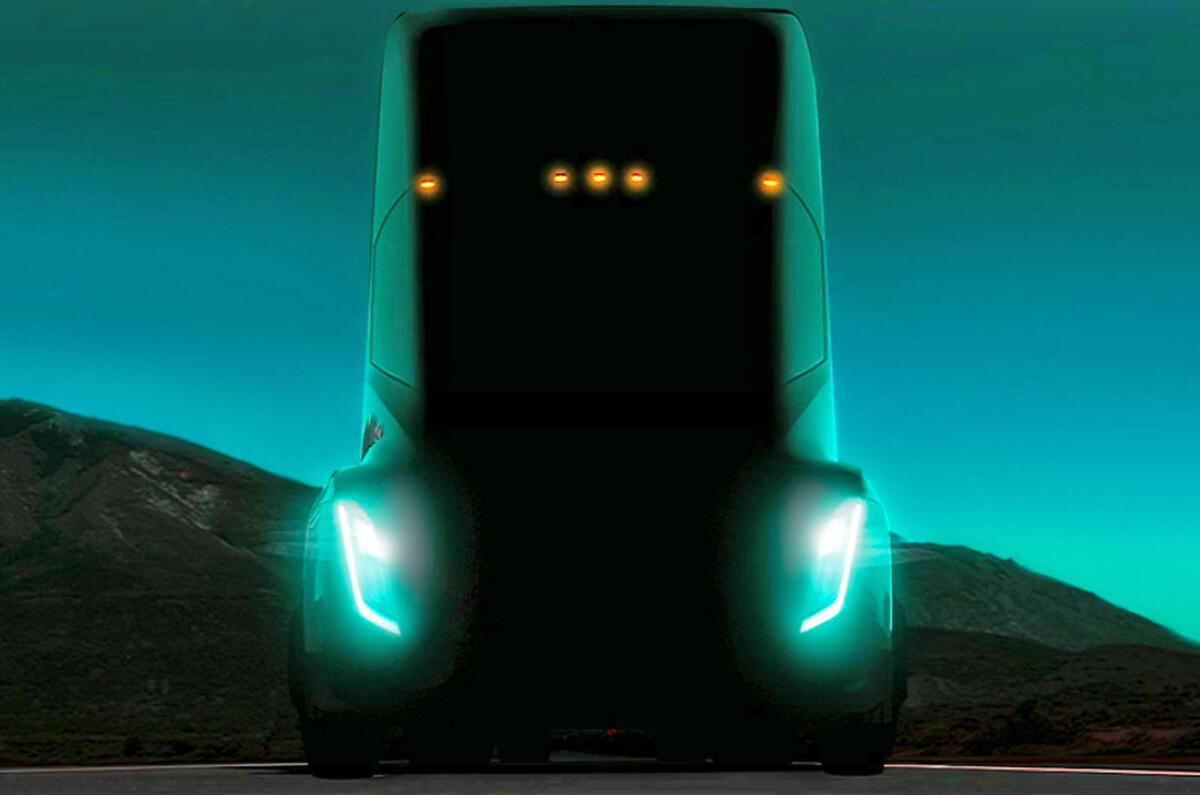
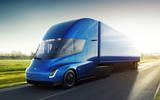
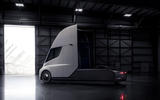

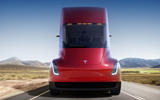








Join the debate
geed
Lorry! Bonkers British word.
typos1
Yeah Ia gree I hate "lorry"
Yeah Ia gree I hate "lorry" truck sounds much better.
XXXX just went POP.
Campervan
Truck? Lorry? Semi?
In the US a truck is what we in the UK call a pick up. The US call an articulated lorry a semi.
iIn the US the best selling vehicle for decades has been a truck, the Ford F-150.
Leslie Brook
Campervan wrote:
It's not a lorry or a truck, it's a Tractor Unit. When connected to a trailer then the combination is a lorry. A truck is the wheels of a skateboard.
If you prevent javascript from running on this site, you can use adblock without it being detected.
Turinbrakes
Taking the lorry out for a spin
What the hell is the point in that? What will be the top model, the GT3 RRS
fadyady
Very interesting
Downunder
No range
Where I live trucks (road trains) need a minimum range of 1,0000 km. Tesla won't deliver that in the near future.
Torque Stear
Downunder wrote:
In Europe all lorries have a maximum range of 220 miles.
That is four hours at 55mph.
Once the lorry has travelled that far the drive must take a break. (I think this is similar in most rich countries)
220 miles is a feasible range for an electric truck, the battery would weigh around 5 tonnes, but the rest of the truck will be much lighter than a diesel so the difference in carrying capability will be pretty minor.
You will require a charging standard that will recharge the truck in around 30 minutes or so or be able to swap batteries (much easier with trucks as they have similar form factors across manufacturers).
This requires a charging or swapping network.
The key reason Tesla are doing this is scalability, a charging network does not need to be that extensive to be useful for at least some operators. Their model is likely to be that they will sign some deals with some large hauliers, they will be able to plan a portion of their fleet to workaround a swapping or "ultracharger" network.
The data and experiance they achieve with this will put them in a leading position and also demonstrate utility, as the number of customers grows it will support more and more chargers eventually there will enough that they do not impact operations at all for most operators.
Herald
@ geed should be pleased to know ...
Wide cars in a world of narrow.
ianp55
New Tesla HGV
Pages
Add your comment